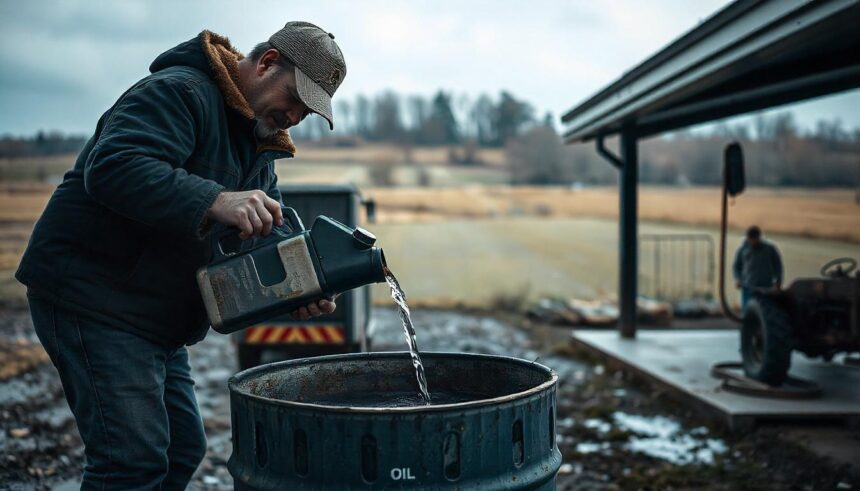Have you ever found a dusty can of gasoline tucked away in your garage or shed? It’s easy to forget about fuel that’s been sitting around for months, if not years. Yet, old gas can become a serious hazard if not disposed of properly. Whether you’re an avid DIYer or just someone looking to declutter, knowing how to dispose of old gas safely is essential. Not only does it protect the environment, but it also safeguards your home from potential fire risks and other issues associated with degraded fuel. Let’s dive into everything you need to know about handling and disposing of old gasoline responsibly!
Importance of Properly Disposing of Old Gas
Properly disposing of old gas isn’t just a matter of convenience; it’s crucial for our safety and the environment. When gasoline ages, its chemical composition changes, leading to potential hazards like leaks or explosions. Improper disposal can put your family at risk.
Moreover, leftover fuel can contaminate soil and water sources if dumped irresponsibly. This type of pollution affects not only local ecosystems but also wildlife that depends on those habitats. It’s an environmental issue that extends beyond personal responsibility.
Regulations around hazardous waste are in place for a reason. Following these guidelines helps keep communities safe from toxic substances that could otherwise seep into everyday surroundings. Understanding the importance of proper gas disposal is key to making informed choices about how we handle fuel products in our homes.
Signs that Gasoline is Old and Needs to Be Disposed Of
Recognizing old gasoline is crucial for maintaining your equipment and vehicles. One of the first signs to look for is a noticeable change in color. Fresh gas appears clear or slightly yellow, while aging fuel can take on a darker hue.
Another telltale sign is the presence of sediment at the bottom of your container. This indicates that impurities have settled over time.
The smell of gasoline can also offer clues. If it has developed a sour or off-putting odor, it’s likely past its prime.
If you notice difficulty starting an engine or poor performance after using it, that could be a red flag. Old gas tends to lose its combustibility, affecting how well engines run.
Safe Handling and Storage of Old Gasoline
When dealing with old gasoline, safety is paramount. Always wear gloves and goggles to protect yourself from harmful fumes and potential spills.
Store gasoline in approved containers that are clearly labeled. These should be made of sturdy materials designed specifically for fuel storage, preventing leaks or explosions.
Keep your storage area cool and dry. Avoid direct sunlight and heat sources, as these can increase the risk of ignition or degradation of the fuel.
Limit access to this area, especially if there are children or pets around. Securely close all containers after each use to minimize evaporation and contamination.
Regularly check your stored gasoline for any signs of deterioration such as discoloration or an off smell. If you notice anything unusual, it’s time to consider safe disposal methods rather than risking further use.
Methods for Disposing of Old Gas
Disposing of old gas requires careful consideration. There are several effective methods to ensure safety and compliance.
One option is to take the gasoline to a local hazardous waste disposal site. Many communities offer designated collection days for such materials, making it convenient for residents.
Some auto shops or service stations may accept old gasoline as well. They often have the facilities needed to handle it properly.
If you’re looking for a more hands-on approach, consider mixing it with fresh gas in small amounts. This can rejuvenate slightly aged fuel, but be cautious about the ratios used.
Another method involves contacting your local fire department or environmental agency. They can provide guidance on safe disposal practices specific to your area.
Always check regulations before proceeding with any method, ensuring you adhere to local laws regarding hazardous waste management.
Recycling Options for Old Gasoline
Recycling old gasoline can be an eco-friendly choice for disposal. Many communities have hazardous waste collection events where you can safely drop off your fuel. These events ensure that the gasoline is handled correctly and prevents harm to the environment.
Some service stations may also offer recycling options. Call ahead to check if they accept old gas, as many are equipped to process it properly.
Another option is contacting local recycling centers. Some facilities specialize in hazardous materials and can guide you on how to dispose of or recycle your unused fuel responsibly.
Additionally, explore programs run by environmental organizations focused on reducing pollution from improper disposal methods. They often provide resources or partnerships for safe recycling initiatives within your area.
Taking these steps not only helps reduce harmful emissions but also promotes a cleaner planet for future generations.
Alternative Uses for Old Gasoline
Old gasoline can sometimes find a second life in various ways, provided it’s still usable. One option is using it to clean metal parts. Its solvent properties help dissolve grease and grime effectively.
Alternatively, if you have an old lawnmower or other equipment that tolerates mixed fuels, combining the old gas with new fuel may extend its usability. It’s essential to check the manufacturer’s recommendations before attempting this.
Another creative use is for starting bonfires or campfires. Just a small amount can ignite your pile of kindling quickly, but handle it cautiously and keep safety as your priority.
Some people even consider using old gasoline in their classic cars after proper assessment. Vintage engines often require specific fuel types; make sure yours can handle it without risking damage. Always evaluate quality first!
Conclusion
Disposing of old gas is not just a matter of convenience; it’s an important responsibility. Proper disposal protects both the environment and your safety. By recognizing signs of aging gasoline, you can act quickly to prevent potential hazards.
Handling and storing gasoline with care is essential. Always follow safety guidelines to minimize risks associated with flammable materials. When it comes time for disposal, there are several effective methods available that prioritize environmental health.
Recycling options provide a sustainable choice for getting rid of old gas while alternative uses can help reduce waste in creative ways. Remembering these strategies will ensure that you’re equipped to manage outdated fuel responsibly.
Taking action on how to dispose of old gas empowers you as a homeowner or outdoor enthusiast. It contributes positively to your community and the planet’s well-being.







